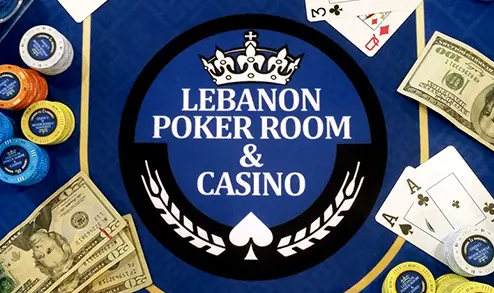 This Monday, the Planning Board held a public hearing on a project seeking to expand the Lebanon Poker Room into a charitable casino with 111 electronic gaming machines and 13 gaming tables. Under the proposal, the Lebanon Poker Room will also include a 41-seat restaurant and bar. The charitable casino would use the former Gerrish Honda building, which is currently vacant.
This Monday, the Planning Board held a public hearing on a project seeking to expand the Lebanon Poker Room into a charitable casino with 111 electronic gaming machines and 13 gaming tables. Under the proposal, the Lebanon Poker Room will also include a 41-seat restaurant and bar. The charitable casino would use the former Gerrish Honda building, which is currently vacant.
As BonusInsider reported this May, the Planning Board moved the meeting to July 12 as it needed more time to review a traffic study for the project. During the public hearing held this Monday, members of the Planning Board announced that they want to first obtain and examine input from the police department before taking their final decision on the project.
At the moment, the Lebanon Poker Room is located at 45 Hanover Street and offers 35 electronic gaming machines and 11 gaming tables. Dick Anagnost, co-owner of the Lebanon Poker Room, announced that the venue would generate more revenue if it had a restaurant and bar.
The Poker Room currently shares space with the Village Pizza and Peking Tokyo restaurants. Both restaurants serve the casino’s patrons, but the Poker Room does not receive a revenue share from them. But if the Poker Room has its own restaurant and bar, it will no longer need to share revenue with the two restaurants.
New Hampshire law stipulates that charitable gaming venues can offer poker, bingo, and casino games but must donate 35% of their revenue to non-profit organizations. Anagnost told board members that the Poker Room also gives 10% of its revenue to the state, which means the Poker Room keeps only 55% of the revenue but pays all expenses.
How the Poker Room Will Affect Crime Rates in the Area?
Members of the Planning Board are to continue the meeting on June 26, when the Lebanon Police is expected to present a report assessing Lebanon Poker Room’s security plan. The board members have announced that they must be meticulous in their decision because they are well aware of the public’s growing concerns about crime and safety in the area. They were also confused by the contradictory information they had been receiving about the police activity at the Lebanon Poker Room.
Anagnost initially told board members that the Lebanon Poker Room has never been the reason for any police calls during its operation. Later during the meeting, he said he knew about two cases of police calls at the gambling venue. However, resident Heather Johnson revealed that the city police logs had shown 10 calls to the Lebanon Poker Room since 2020. According to the police logs, there were two calls to the Lebanon Poker Room in April alone.
Deputy Planning and Development Director Tim Corwin said that the Planning Board could not deny a permit to a charitable casino if it meets the regulations. He added that the board could recommend additional measures to improve public safety and partly regulate the operations of the gambling venue. Resident Mike Balog, a former law enforcement officer, told board members that casinos usually lead to increased crime rates.
The potential casino also raised concerns about the increased traffic in the residential area. Jeffrey Dirk, a traffic engineer from the consulting firm Vanasse and Associates, explained that the casino is unlikely to have a significant impact on the traffic in the area. He elaborated that the charitable casino’s peak hour would be 8 p.m. During peak hours, there would be 75 more vehicles on the road, which is unlikely to cause any significant delays.